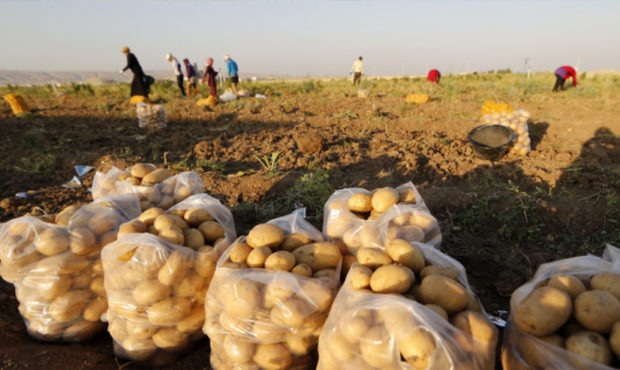In its mission to inspire and empower agrifood startups, Berytech brought together experts and entrepreneurs to discuss the pressing subject of Food Security, particularly Lebanon and the MENA region, to tackle the 4 pillars in food safety: availability, access, utilization, and stability. The aim is to inspire entrepreneurs and change-makers to address the challenges of building a vital safety net for MENA populations and turning these challenges into business opportunities. Here are the highlights of the discussions:
When looking for solutions for any of the food security challenges, organizations, as well as, entrepreneurs need to keep one thing in mind: localization and understanding the profile of the client or beneficiary they are tailoring solutions for.
The MENA is the only region where food insecurity has increased while being the largest food importer in the world. Technology in the region is largely needed to improve the efficiency and resilience of agriculture systems, value chain traceability, access to market, access to information, etc.
To maintain the food security level needed for Lebanon, we need to make the food and agriculture sectors as smart, as efficient and as productive as possible. The local economic crisis and regional food instability are a motive to shift from a traditional and conventional food culture to a smart agri-tech one. To intervene in improving stability, we must focus on improving stocks or reserves, food processing, and shelf-life, reducing food waste and loss, localizing the food supply chain, as well as making it shorter and closer to the consumer. Technology can play a huge role because availability is the name of the game. Having a tool that shows price levels at different shops where the items are available will allow to observe new trends.
One of the biggest bottlenecks to the development of the agriculture sector is in the antiquated methods of running businesses. The sector is predominantly lacking youth because it is not an attractive sector. The challenge exists in introducing new technology to old mindsets, in bringing forward new trends, that would influence business operations, therefore, enhance their productivity.
There is a need to identify the farmers working in Lebanon, to find a way to communicate with them. There is no data on that, on how much they produce, how much they consume, what are the resources that they need. The lack of data does not mean that we don’t know, it means that there is no verified national data that action can be based upon. Farmers are still skeptical about using technology, so entrepreneurs cannot exclusively rely on introducing technology in agriculture at this stage but look for different innovative means. They should look at not only decentralizing food supply chains, making them shorter and more efficient but at reducing food waste and losses.
Creating a shift in access to food requires the creation of more affordable food sources and extending the shelf life of perishable foods to minimize waste. For that to become a reality, agriculture and food sectors need to become smarter by involving technology.
Producers don’t choose to produce unsafe products, but the cost of compliance is often a challenge for small-scale producers, and safe food that is monitored costs more. When safety is not compromised for the sake of the cost, it makes the safe product less accessible for poorer consumers.
Fidele el Achkar, Co-founder of FoodSight and the Lebanese Agripreneur of the Year, was hosted in one of the sessions. FoodSight has created an online platform that helps small and medium-sized food businesses overcome their food safety challenges by connecting them to freelance professionals to tackle their most pressing challenges in terms of food safety, quality, and export compliance, to allow food businesses to enhance the quality of their food products, improve business standards, and increase revenues.
The startup is currently enrolled in the Agrytech Accelerator, a program by Berytech, allowing them to build solutions to current problems. Foodsight believes that their solution will disrupt the way food safety is tackled in the region, create business opportunities, and have a strong social impact.
The hard work of the two women founders paid off this summer by winning the Future Agro Challenge competition in Lebanon allowing them to represent Lebanon during the next Global Agripreneur Summit.

